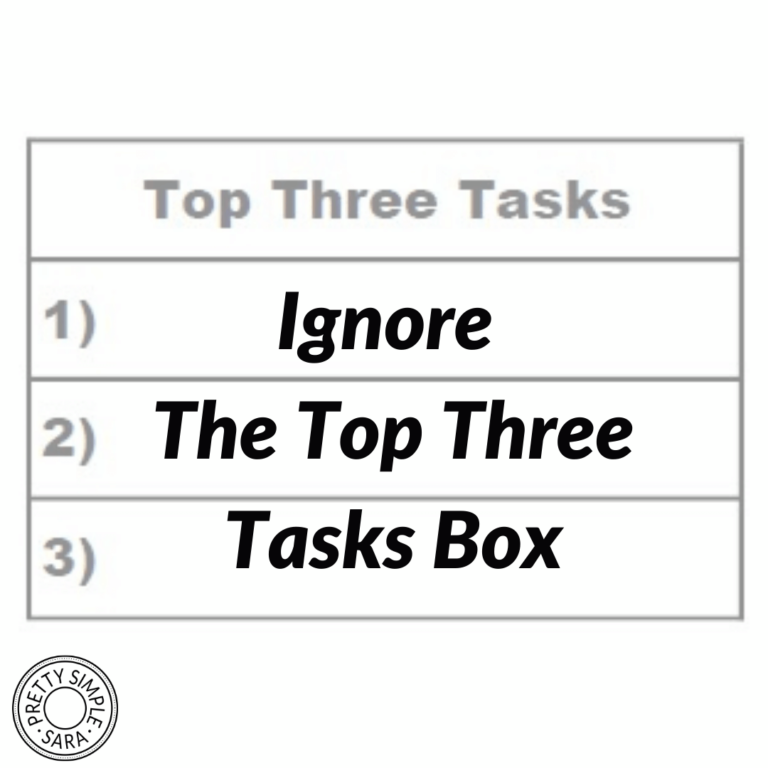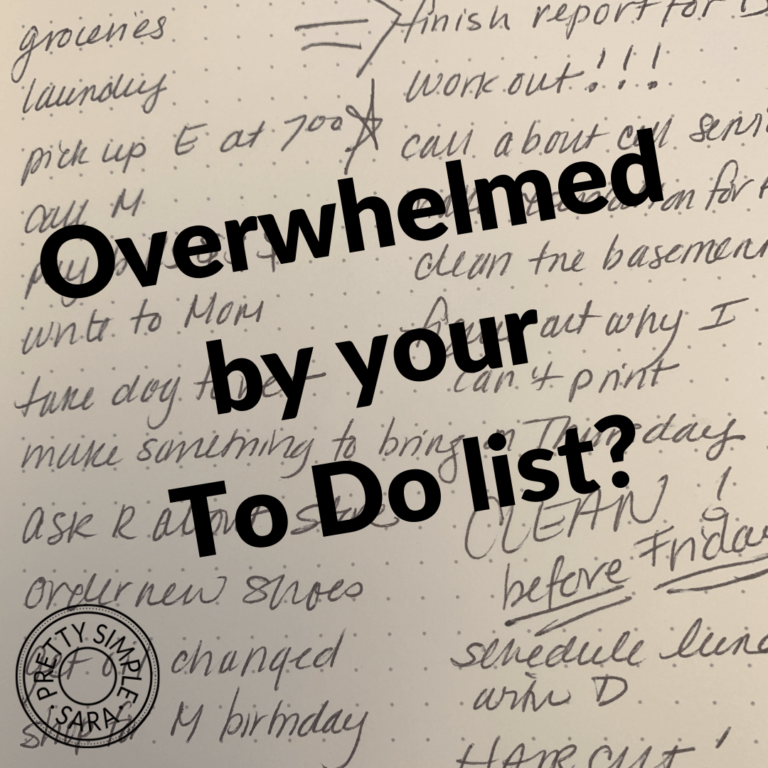But I Just Don’t Know Where to Start!
You just had another way too exhausting hike up the stairs and you know you need to get healthier. You want to be healthier, but you just don’t know where to start.
You just ran your bank account down to $0 yet again. You know you’ll never dig out of this hole for good until you have a plan to save some money, but you just don’t know where to start.
You really want to start up that blog you’ve always dreamed of, but you just don’t know where to start.
Do any of these sound familiar? What’s your thing that you’ve always wanted to do, but you just don’t know where to start?

How to know where to start
Every goal begins as just a goal. Every goal needs a plan to make it happen.
I bet you’ve searched the internet for someone to just tell you exactly what you need to do to reach your goal. Maybe you even found an article ‘7 steps to X’. I bet you started that very day but gave up after a week. Why? That plan didn’t take into account all that is special about you.
You need a plan that’s built just for you. And you don’t need to hire a guru to help you. You can actually figure this out yourself. It’s not hard and it only gets easier the more you do it!
Developing a plan is just a series of steps!
Define Your Goal
Is your goal abstract or concrete?
We often start with wishes.
Wishes are important! I like to think of them as abstract goals (Abstract vs. Concrete Goals). They give hope to your goal. They give you motivation. But you can’t formulate a plan from a wish. You have to have a concrete goal.
A concrete goal has a definite way to know that you have achieved it. ‘Get healthy’ is an abstract goal. ‘Lose 20 pounds’ is a concrete goal. ‘Be more financially secure’ is an abstract goal ‘Save $5000 in an emergency fund’ is a concrete goal.
Getting from an abstract goal to a concrete goal
Don’t have a concrete goal yet? Grab a pen and paper.
Write what you want, your abstract goal, on that piece of paper. Write it big! Own it!
Sit back and look at it and ask yourself some questions
Why do I want to _________?
What does doing/being this mean?
What does this goal look like in my life if I’ve achieved it?
If your abstract goal is to be healthy ask yourself questions like: Why do I want to be healthy? What does healthy mean to me? What does healthy look like for me?
If you have a super abstract goal you might have to play the why game.
After doing this you probably have a long list of concrete things to do that help you reach your wish. Consider them carefully and decide which one will contribute the most towards reaching itl. Which one will give you the greatest feeling like you are making progress?
Write that new concrete goal on a new sheet of paper. Make sure it is a fully defined smart goal, not only relevant to your abstract goal, but also reasonable and specific. I’ve got a whole post about that here – check it out!
Concrete goal to plan
I’m thinking that if you haven’t achieved this goal yet in your life you don’t know where to start!
So where do you start?
What’s it worth to you?
Decide how much time and energy you want to spend each day/week on this goal. Don’t research yet as to how everyone else thinks you should make it happen. You just decide how much time you have to devote to this goal
Schedule it
Before you start trying to figure out how to make this goal happen, put that time you are willing to spend in your schedule. It’s important to schedule the time you are going to invest so that you actually do it. Figure out when in your day/week you are going to work on this goal. Commit to using this time for your goal!
Research
Use your scheduled time to research the best ways to accomplish your goal. Don’t worry that you aren’t making progress yet. You ARE. You are figuring out the best way to accomplish your goal. So go ahead and type your goal into Google and do some reading. See what advice people have who have been there. Write all those chunks of advice down on your paper.
Evaluate your research
This is where you really need to do some patient thinking and considering. You are the best person to know you. Is there advice given by lots of people that you’ve tried before but it didn’t work? Do a long hard think about why it didn’t work. Don’t just fall into the trap that you don’t have enough willpower. There’s a reason it didn’t work. What is that reason? Can you think of a different way to try it? Decide what will work best for you.
If you are trying to develop a habit, read Atomic Habits by James Clear.
For some of us it is easy to get stuck in the research stage. At some point you stop making progress towards your goal and instead are just trying to create the optimal plan. I can’t give you the amount of time you should spend on research because goals are all different – building a boat takes more research than how to get to a pullup. The best thing you can do is start taking action as soon as you can, not when your plan is perfect. Your plan WILL change, so getting it perfect at the beginning is pointless.

Writing the steps
Does this all sound nice, but you still don’t know where to start? Here are a few tips about the nitty gritty of getting the steps down on paper:
Start at the end
If you are getting bogged down trying to figure out what needs to happen first, try starting at the end. Look at your research and write the last thing that needs to happen to achieve your goal. Then write down what you need to do to make that happen, and keep going backwards until you are where you are right now. Now you have a list of steps that starts right now!
Group ideas together
If you have lots and lots of tasks and you are starting to feel overwhelmed, create subgoals within your big goal. If you are wanting to redecorate your house you might want to group tasks by room, or by type. Do you want to paint everything in the house at once or would you like to completely redecorate one room at a time? Grouping tasks into subgoals gives you opportunities to celebrate!
Break it down to small steps
Plans should be easy to use. It should be easy to know what the next task is.
Although big goals may have categories of tasks, you shouldn’t have anything in your list of what to do during your scheduled goal time that is more than a single task. When you read your list of tasks you should know exactly what you need to do. Paint the kitchen is not simple enough. You should have 1) pick up paint chips 2) pick a paint color 3) buy the paint….
Look at your list of steps and break down any steps that include more than one task.
Recognize that establishing a habit is a BIG DEAL
Most goals require both step by step progress and establishing new habits. Establishing new habits can be hard. You might have easily broken down your goal into a nice neat progression of steps but are balking at the fact that you have to do X every single day for your plan to work. Make establishing that habit the first subgoal. If you are having trouble establishing a new habit, check out Atomic Habits by James Clear. I may earn a small commission if you click through the link below.
Beware of busywork
Make sure that each task in your plan actually moves you closer to your goal. It’s easy to put busywork on a task list just to have something to check off. Don’t waste your precious time that you’ve committed to your goal.
Beware of overwhelm
Make sure you aren’t working on too much at once.
If your nice single concrete goal seems to have morphed into many subgoals, take a step back and pick just ONE of the subgoals to work on first. You can decide to write a book, but actually sitting down to spending time everyday on it is a major habit. Just establishing that habit is a wonderful goal to achieve. After you’ve firmly established the writing habit you can start on your next subgoal.
Use a simple tool
You shouldn’t spend all your time organizing your task list tool. You set aside your goal time to achieve a goal, not to learn a new system. Use whatever tool you already use to organize your life. A new plan and a new goal does not mean a new app! Using plain old paper and pencil removes the possibility of ‘playing with app’ procrastination!






